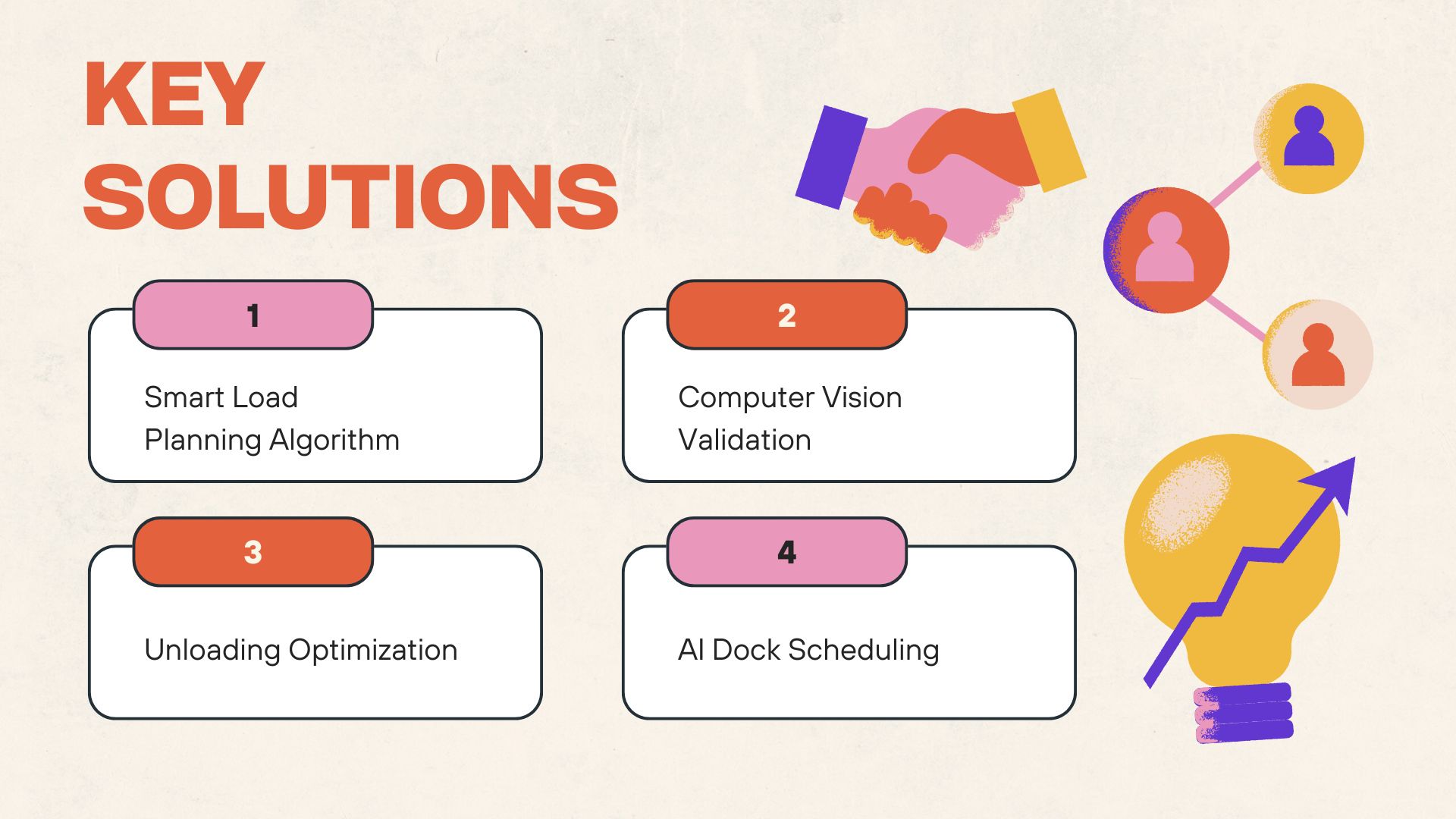AI-Powered Truck Load Optimization & Dock Management

Client Overview
A prominent logistics and supply chain company managing large-scale daily shipments across multiple regions. The client services numerous retail and wholesale partners and relies on precise scheduling and space utilization for both inbound and outbound freight. Given the volume of cargo and strict delivery timelines, efficient truck loading and dock scheduling are vital for minimizing operational costs and maximizing productivity.
Challenge
The client was facing multiple operational inefficiencies across their warehouse and logistics workflows, leading to:
- Underutilized truck capacity, resulting in increased transportation costs due to partially filled shipments
- Poor weight distribution inside trucks, leading to carton damages and higher claims
- Disorganized unloading at delivery sites, especially for trucks with multiple drop-off points
- Bottlenecks at loading docks, causing delays in shipment dispatch and reduced dock throughput
- Manual planning and lack of visibility further amplified these issues, impacting delivery SLAs and overall customer satisfaction.
These challenges highlighted the need for a smart, automated system that could improve truck load planning and dock scheduling across warehouses.
Solution
Fx31 Labs designed and deployed an AI-powered Truck Load Optimization and Dock Scheduling System tailored to the client’s logistics operations. The solution focused on maximizing truck capacity, ensuring load safety, and minimizing handling delays using a combination of computer vision and AI-driven logistics algorithms.

Key components of the solution included:
- Smart Load Planning Algorithm: The system analyzed SKU-level data (dimensions, weight, destination sequence) and generated a 3D optimized loading pattern that ensured full utilization of truck volume while maintaining proper weight balance.
- Computer Vision Validation: Integrated cameras and AI vision modules verified carton placement during loading to prevent improper stacking and unsafe arrangements that could result in product damage.
- Unloading Optimization: The system arranged cartons based on delivery order, making it easier and faster to unload at multiple delivery sites, reducing time spent per stop.
- AI Dock Scheduling: An intelligent scheduling algorithm mapped truck availability to dock slots based on load priority, size, and destination. This streamlined the entire warehouse dispatch process and reduced dock idle times.
The platform integrated seamlessly with the client’s existing WMS (Warehouse Management System), offering real-time dashboards for operational monitoring and quick decision-making.
Impact
Following the deployment of the optimization system, the client witnessed substantial improvements in key logistics performance indicators:
- Truck capacity utilization increased, reducing the number of trips needed and lowering transportation costs
- Balanced load distribution reduced product damages, improving customer trust and decreasing claim costs
- Dock turnaround time improved, with smoother scheduling and reduced wait times
- Multi-drop deliveries became faster and more efficient, thanks to organized loading sequences
Overall supply chain operations became more predictable and cost-effective, with greater visibility and AI-assisted planning.
Let’s Talk!
Get in touch and our team will contact you right away to better understand your needs and share more details on how we can help.
